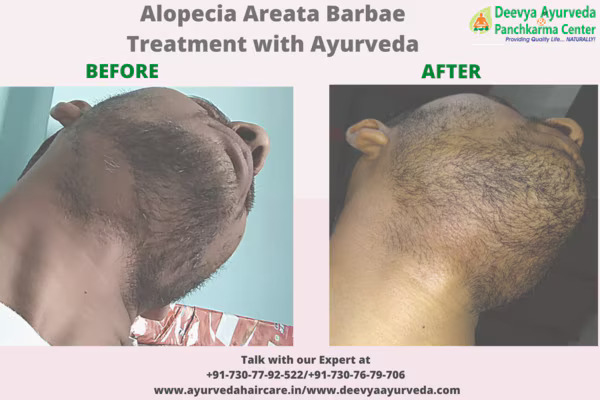
Alopecia universalis is a severe type of hair loss that affects the entire scalp and sometimes other areas of the body. While conventional medicine offers limited options, Ayurveda, an ancient Indian system of medicine, provides a holistic approach to managing this condition.
Understanding Alopecia Universalis
Alopecia universalis is an autoimmune disorder where the body’s immune system mistakenly attacks hair follicles, leading to complete hair loss. While the exact cause remains unknown, Ayurvedic practitioners believe it stems from an imbalance of the doshas (the three fundamental energies in the body).
Ayurvedic Approach to Alopecia Universalis
Ayurveda emphasizes treating the underlying cause rather than just the symptoms. Here’s a holistic approach to managing alopecia universalis:
Dietary Modifications:
Avoid: Pitta-aggravating foods like spicy, sour, and salty foods.
Include: Cooling and grounding foods like coconut, amla (Indian gooseberry), and leafy greens.
Hydration: Drink plenty of water to keep your body hydrated.
Herbal Remedies:
Bhringraj: This herb is considered a natural hair growth promoter.
Brahmi: Helps balance the mind and reduce stress.
Triphala: A herbal blend known for its detoxifying properties.
Panchakarma Therapies:
Abhyanga: A full-body oil massage to improve circulation and nourish the scalp.
Shirodhara: A gentle stream of warm oil poured onto the forehead to relax the mind and promote hair growth.
Virechan: A therapeutic cleansing process to eliminate toxins.
Lifestyle Changes:
Stress Management: Practice yoga, meditation, or deep breathing to reduce stress.
Sleep: Ensure you get adequate sleep to support overall health.
Regular Exercise: Engage in gentle exercises like walking or swimming.
Hair Care:
Gentle Products: Use mild, sulfate-free shampoos and conditioners.
Scalp Massage: Regularly massage your scalp to stimulate blood flow.
Avoid Heat Styling: Minimize the use of heat styling tools.
Consultation with an Ayurvedic Practitioner
It’s essential to consult with a qualified Ayurvedic practitioner for a personalized treatment plan. They will assess your specific dosha imbalance and recommend appropriate therapies.